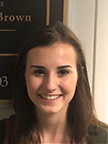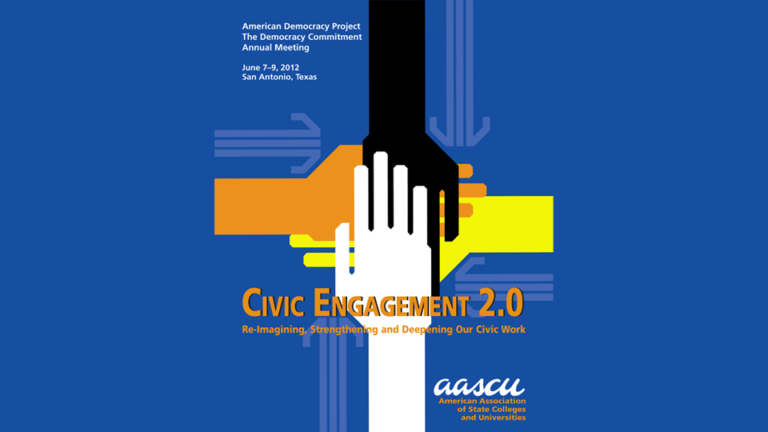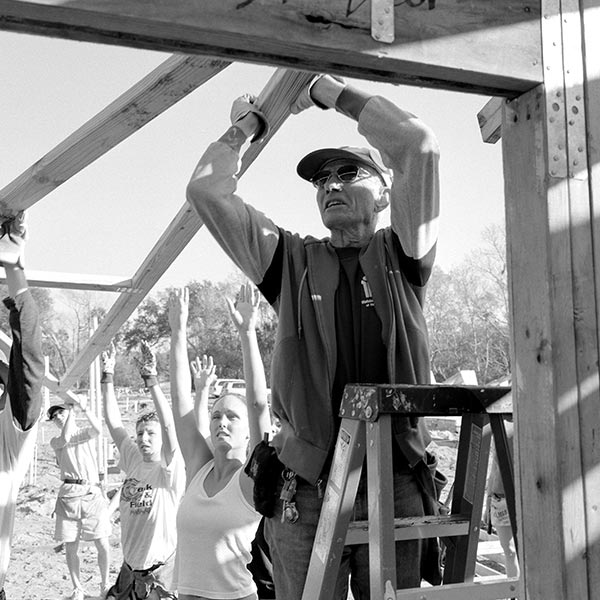Author Note
Tessa A. Lokie, Political Science Department, Ohio University.
Correspondence concerning this article should be addressed to Tessa A. Lokie.
mail: tl004216@ohio.edu
When I declared my major to be political science pre-law as an optimistic 18-year-old starting her college career, I had no understanding of the storm that had begun brewing in the United States. Over the past couple of years, the nation has experienced increasing unrest, with factors piling on top of each other, further swirling the storm. I consider myself extremely fortunate to have served as a Congressional intern as the storm began to rage full force.
Upon starting my internship, I was wildly uninformed about how government business was conducted at the federal level. What alarmed me most, though, was just how little I appeared to know despite my being a political science major—which led me to wonder: If I was so clearly undereducated in the subject matter my courses were supposed to be teaching, what level of understanding did the majority of the public hold? That said, I do not blame my university in any way, shape, or form; the courses I have taken at Ohio University have been nothing but thought-provoking and challenging. Yet, there is a significant difference between bookwork on politics and actual day-to-day governmental proceedings.
As my internship continued, I realized the true importance of civic engagement and society’s participation in elections/political decisions. The amount of power held by the elected individuals I encountered was shocking, and discovering this allowed me to comprehend the importance of voter participation, as well as fueled my desire to encourage it. In order to maintain our government’s democratic nature—which we so proudly claim—we must use our voices, through voting, to ensure that those in control listen to the needs of their constituents and consider those needs when making bureaucratic decisions. However, societal participation extends beyond just voting—an awareness many Americans lack. Indeed, we must continue to monitor individuals we elect and ensure they are acting on their “campaign promises.” All it takes is a couple minutes a week reviewing the website(s) of one’s choice (e.g., Vote Smart, Ballotpedia, etc.) to keep up on the facts and hold representatives accountable. We must stay informed—even though at times it feels like a chore—if we want to change the path our nation has taken. It is the responsibility of every citizen.
Throughout my time on the Hill, I also saw just how prestigious our elected officials have become, especially certain individuals who have obtained heightened notoriety. In any American history course, one learns of the monarchy that our nation fought against to achieve freedom and how the goal of the nation was to create a true democracy in which everyone’s voice mattered. I was alarmed, therefore, by the oligarchical undertones I perceived during my internship. Separate elevators for Senators only, constituents star struck upon meeting representatives, reporters following them with their recorders held high—the Hill equivalent of paparazzi. While not necessarily the fault of those in power; they sit on pedestals, ones which we have put them.
It may seem that there is little we can do on an individual level to combat this trend, though actively choosing to treat every person one encounters with the same respect and courtesy is certainly a step in the right direction. Recent occurrences throughout the country have shown that we are beginning to no longer accept the inequality woven into the very foundations of our nation. We must fight to continue this movement; hundreds of years of injustices cannot be resolved through momentary action. Equality will not be obtained until race and gender are no longer taken into consideration. And while some may argue that reducing emphasis on such qualities could risk heightened inequality, I find the significance of these elements has increased past a helpful amount. As mentioned earlier, by treating all people we encounter with equal levels of respect and regard, we can collectively begin the changes needed in our societal interactions—changes that one hopes will impact how political representatives communicate with their constituents and colleagues as well.
U.S. democracy and its emphasis on equal representation are what made the country the “land of dreams,” yet as citizens we must begin (or continue) to take an active role in our government to maintain these ideals, especially as attention to them seems to be lessening. Regardless of one’s gender, ethnicity, or political affiliation, I find it to be of utmost importance that we come together as a community and be the change we wish to see. While one’s individual participation may not seem significant enough to make any difference and while avoidance of such tasks may seem easier to justify as life inevitably gets busier, every small action adds up. Please remember this when the next election rolls around.
Tessa A. Lokie, Ohio University | Class of 2021
Political Science Pre-Law | College of Arts and Sciences
Academic Chair | Phi Alpha Delta
Pre-Law Ambassador
Author
 Tessa Lokie is beginning her senior year of college at Ohio University, pursuing a degree in Political Science Pre-law. Tessa has been active within the pre-law community on campus, serving as a pre-law ambassador and as Academic Chair of her Pre-law Fraternity Phi Alpha Delta. In the fall of 2019, she had the opportunity to intern for a United States Senator in Washington D.C. After graduation, Tessa plans to attend law school and hopes to pursue a career in Child and Family law.
Tessa Lokie is beginning her senior year of college at Ohio University, pursuing a degree in Political Science Pre-law. Tessa has been active within the pre-law community on campus, serving as a pre-law ambassador and as Academic Chair of her Pre-law Fraternity Phi Alpha Delta. In the fall of 2019, she had the opportunity to intern for a United States Senator in Washington D.C. After graduation, Tessa plans to attend law school and hopes to pursue a career in Child and Family law.


